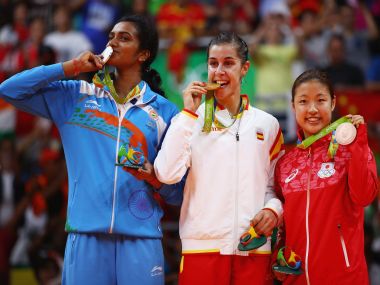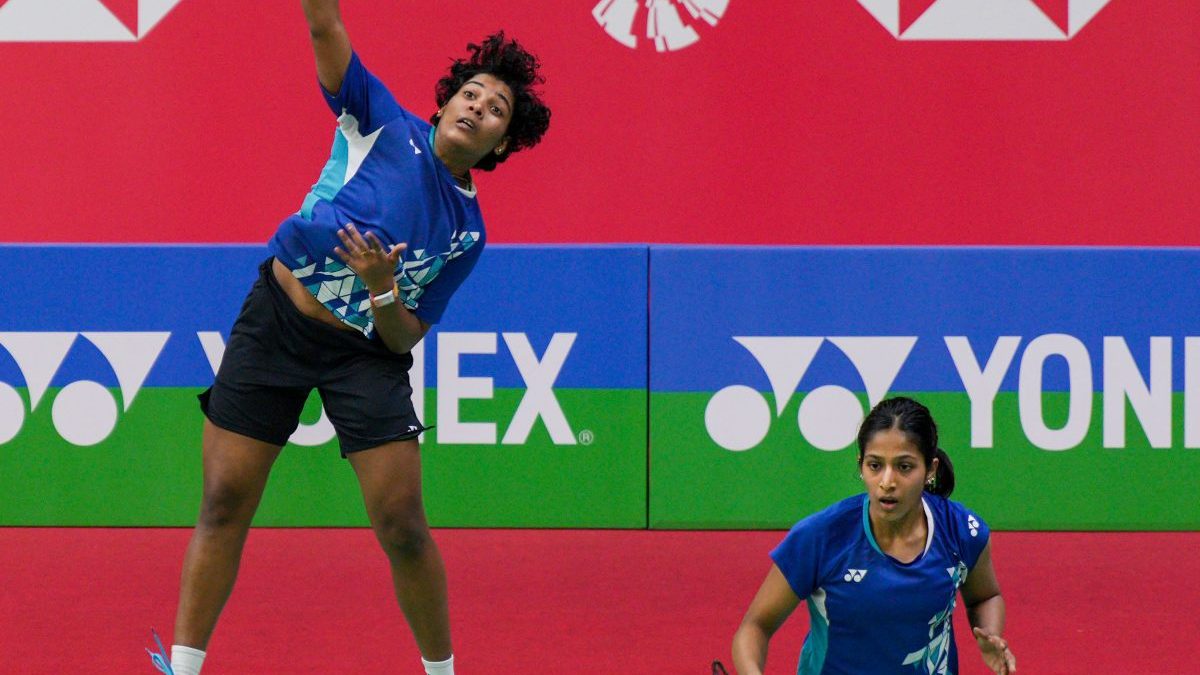Nothing provided greater evidence of a change in the world order in badminton than the results of the 2016 Rio Olympics. China’s sustained domination of the badminton events at the Olympics since the sport was introduced into the Games at Barcelona in 1992 was strongly questioned at Rio, when the world’s leading badminton nation won just two of the five gold medals at stake, compared to a clean sweep of all five golds in London, four years ago.
The Chinese had captured eight (five gold, two silver and one bronze) of the 15 medals at stake in the 2012 Games, and ensured that two of the five finals had been all-China affairs. This time, there was not a single all-China affair in the finals, and players from the world’s most populous nation had to rest content with a mere three medals – two golds and a bronze.
Although the Chinese tally was still more than the number of medals bagged by any other nation bar Malaysia, there was a far more even distribution of prizes. A resurgent Malaysia had three silvers in its satchel, while Japan took home one gold and one bronze, and Denmark one silver and one bronze. There was one medal each at the Riocentro Pavilhao for two nations who had bagged badminton medals at earlier Olympiads – Indonesia (gold from the mixed doubles) and South Korea (bronze from the women’s doubles). But the greatest plaudits for medal wins was reserved for Spain (gold in the women’s singles), India (silver in the women’s singles) and Great Britain (bronze in the men’s doubles).
But for the proverbial slip betwixt cup and lip at championship point, the gold medals could well have been distributed between five different nations – China, Spain, Malaysia, Japan and Indonesia.
Malaysia could have snatched the men’s doubles gold from China, had its exciting young duo of Tan Wee Kiong and Goh V Shem managed to convert even one of the two championship points they held in the deciding game of the final. Their failure to do so permitted the Chinese to salvage their second gold from the ruins of their ambitious campaign to go for a second consecutive clean sweep.
Chinese left-hander Fu Haifeng cemented his reputation as one of the sport’s greatest ever doubles players when he earned the distinction of climbing atop the rostrum for the third time in the last three Olympics – with two different partners.
The remarkable veteran doubles specialist, who will turn 33 two days after the end of these Olympics, won a second successive men’s doubles gold medal, this time in the company of Zhang Nan. He had bagged gold in partnership with Cai Yun in London four years ago, and been a silver medallist in tandem with Cai, behind Indonesians Markis Kido and Hendra Setiawan in the 2008 Olympics.
In Rio, the Chinese pair was able to hold back the bubbling enthusiasm of the young Malaysians Tan and Goh, as recounted above, by a 16-21, 21-11, 23-21 scoreline. It was heart-breaking for the Malaysians, of whom much is likely to be heard in the future, to lose the summit clash after they had come from behind in the decider to serve for the title at 20-19.
A short serve by Tan to Zhang, which the latter had the enormous courage to leave at gold-medal point for the opposition, restored parity in the scores. The Malaysians forced an error from Fu and once again went ahead for their second championship-point, only for the greenhorn Goh to buckle under the pressure and serve into the net. That was the only leeway that the experienced Chinese pair needed to wrap up the issue and secure China’s first gold in the Rio event.
A second gold was added to the Chinese kitty on the final day of the event when Chen Long extended China’s hegemony on the men’s singles crown by downing Malaysia’s Lee Chong Wei in straight games, albeit in a closely contested 74-minute final that somehow failed to touch the dizzy heights which the semi-final between Lee and the legendary Lin Dan had done the previous day.
Zhang Nan’s doubles gold was his second Olympic medal of the same hue, and added to the one he had won four years ago in London in the mixed doubles, in partnership with his long-time girlfriend Zhao Yunlei. The two tried to repeat their gold-winning performance at Rio, but had to settle for the bronze in the event which witnessed some tight competition. It was clear that Zhao had slowed down since 2012, following a right knee injury, and was far from her best in Rio.
The mixed event was deservedly bagged by the Indonesian combination of Tontowi Ahmad and Lilyana Natsir, who had little trouble settling the aspirations of Malaysians Chan Peng Soon and Goh Liu Ying in the final. Natsir had been a silver medallist at Beijing, eight years ago, in the company of Nova Widianto; and this time, was able to go one better with Tontowi, who has been her regular partner for the past six years.
Denmark did miss its first Olympic gold medal since Poul Erik Hoyer Larsen (currently president of the Badminton World Federation) won the men’s singles event at Atlanta in 1996, when the women’s doubles combination of Christinna Pedersen and Kamilla Rytter-Juhl were hauled back from match-point in the decider by the world’s top ranked Japanese duo of Ayaka Takahashi and Misaki Matsutomo.
The Danes, understandably frustrated and miserable after their near-miss, could have learned the finer points of sportsmanship from India’s PV Sindhu, who was narrowly vanquished by a vastly superior world and European champion, Carolina Marin of Spain, in the women’s singles final, but accepted her defeat with grace and dignity. A clearly superior Marin was not allowed to break away, but was repeatedly hauled back by the obdurate Sindhu in a stirring show of guts and fight; and had to really dig deep to subdue her lanky rival.
Arguably, there would have been greater celebrations at the result in India than in Spain, for it had been one of only two medals that the country of 1.3 billion people had been able to take away from the 2016 Rio Olympics. As a ‘sher’ floating on the Internet fittingly remarked on Sindhu’s behalf to Marin: Mukaam haasil hamne kuchh yoon kiya Ghalib, Ki tumhaari jeet se zyaada hamaari haar ke charche hain! (I have traversed such a path to the destination, Ghalib, That my loss has produced more discussion than your win!)


)




)
)
)
)
)
)
)
)